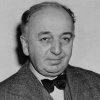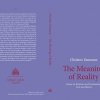TURKISH ENSLAVEMENT
Turkish rule lasted 4-5 centuries and this proved to be the longest period of enslavement in Serbian history. The problem was deepened by the fact that the culprit, i.e. the aggressor, was of a different faith. Many a Serb is still experiencing this slavery, and for some (those that were converted to Islam) it is never going to end. City of Constantinople and the Byzantine Empire fell to the Ottoman Turks in 1453. There quickly followed the fall of Bulgaria, of the fortress of Smederevo and the Serbian Despotate (1459), Bosnia (1463), Herzegovina (1482), and Montenegro (Crna Gora) in 1499. Serbian Orthodox Church shared the destiny of its people during those times that were marked as “cruel and precarious” and when “the living envied those that were dead”. Serbs had no legal rights whatsoever as subjects of the Islamic Ottoman Empire. They had to pay special duties just for the basic right to live in an Islamic state.
As far as the Church was concerned it could be said that Turkish yoke meant an occurrence of a long lasting abnormal state of affairs within the Church itself. Last patriarch to be mentioned was Arsenius II. Council of bishops could not convene on a regular basis and this meant that it simply became and impossible task to elect a patriarch. Some contemporary literary sources illustrated these hard times very well: “Sadness overcame the people and there occurred such a slaying of Christians as had never been seen before”. Or: “Resembling flying serpents, Turks burned all villages and cities … and churches and cities they sacked …” Christian population attempted to save itself by undertaking mass migrations in face of Turkish oppression. They took refuge to the north and to the west, across rivers Sava and Danube, and by doing this they entered territory under Austrian rule. Roman Catholic Austria did not look kindly upon “schismatic” (Orthodox) Serbs, but it allowed them to settle the border, barren areas of its Empire, form a “military frontier” and, thereby, serve as a living rampart between the Ottomans and the Empire. Included in these mass migrations of Serbian ordinary folk were also the monks and priests who carried with them the most significant national and spiritual treasures in an attempt to have them saved from oblivion. Thus, they carried holy relics of Serbian saints, books, icons etc. North of rivers Sava and Danube they established and built new monasteries and churches, which came to serve as new spiritual centres for Orthodox Serbs. Apart from those already existing in Banat (e.g. monasteries Mesic [Mesich] and Zlatica [Zlatitsa]) more new monasteries were founded in this region: Bazjas (Bazyash), Bezdan, St. George. On the slopes of Fruska Gora and Srem following monasteries were built: Grgeteg (founded by “Zmaj Ognjeni Vuk” — Vuk Grgurevic Vrankovic, a member of the last medieval, Brankovic, dynasty), Fenek (founded by Mother Angelina), Hopovo, Divsa (Divsha), Krusedol (Krushedol), Sisatovac (Shishatovats, founded by immigrant Zica monks). In 16th century Slavonia we have monasteries: Orahovica, Pakra, Lepavina and Marca; in other regions (Gorski Kotar and Banija) we have Gomirje (Gomirye) and Komogovina.
It should be said that the Patriarchate of Pec was not officially abolished after Turkish occupation. However there occurred such a situation where the Archbishopric of Ohrid gradually took over many a diocese of the Pec Patriarchate under its own spiritual jurisdiction. This was one in full knowledge of the Turks and often assisted both by them and even by the Oecumenical Patriarchate in Constantinople. Archbishop Prohor (1525, 1528, Prochorus) was, as far as this matter was concerned, one of the most energetic among Ohrid prelates.
Serbian Metropolitan of Smederevo Paul (“Paul of Smederevo”) resisted this infringement into Serbian spiritual jurisdiction as much as he could. He even succeeded in renewing the Patriarchate of Pec and proclaiming himself the Patriarch. However, this was a very brief affair, since two Councils of Ohrid condemned him in 1532 and 1541 and, as a consequence, had him banished from Pec.
It has been recorded that many Christian Orthodox Serbs converted to Islam, most of them under duress, and some in order to keep prior or attain new privileges. An unknown contemporary poet said: “Those that were cowardly or greedy became converted…” The population was particularly disturbed by the so-called “bloody duty”, i.e. enslavement of young Serbian boys. After being abducted from their families they were brought up and educated in Islamic tradition far away from their families and raised to form crack troops of the Turkish army — the janizaries, who, unwittingly, did most of their famed atrocities on the population inhabiting the very regions they themselves originally came from. A contemporary popular saying went: “A convert is worse than a Turk”.




